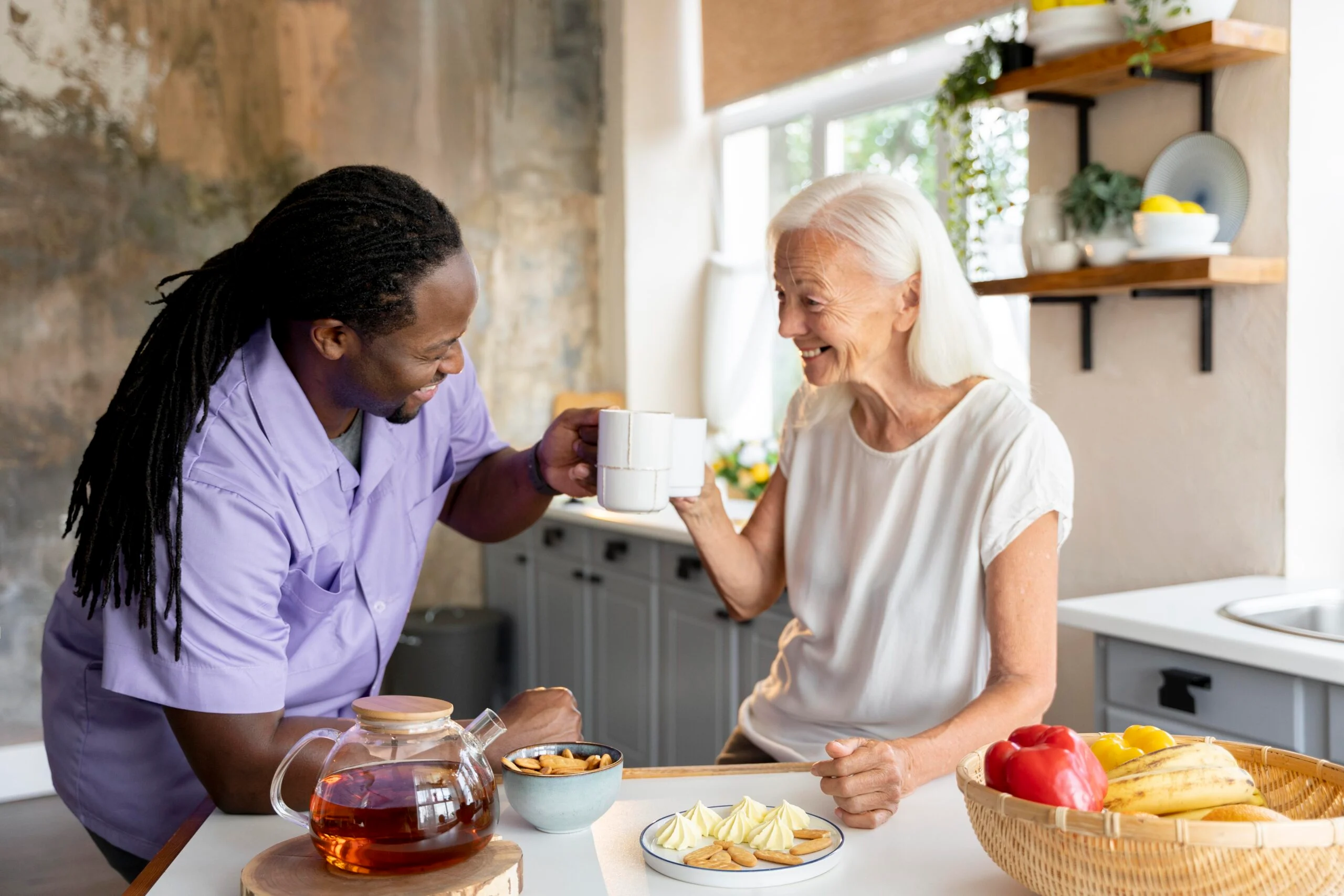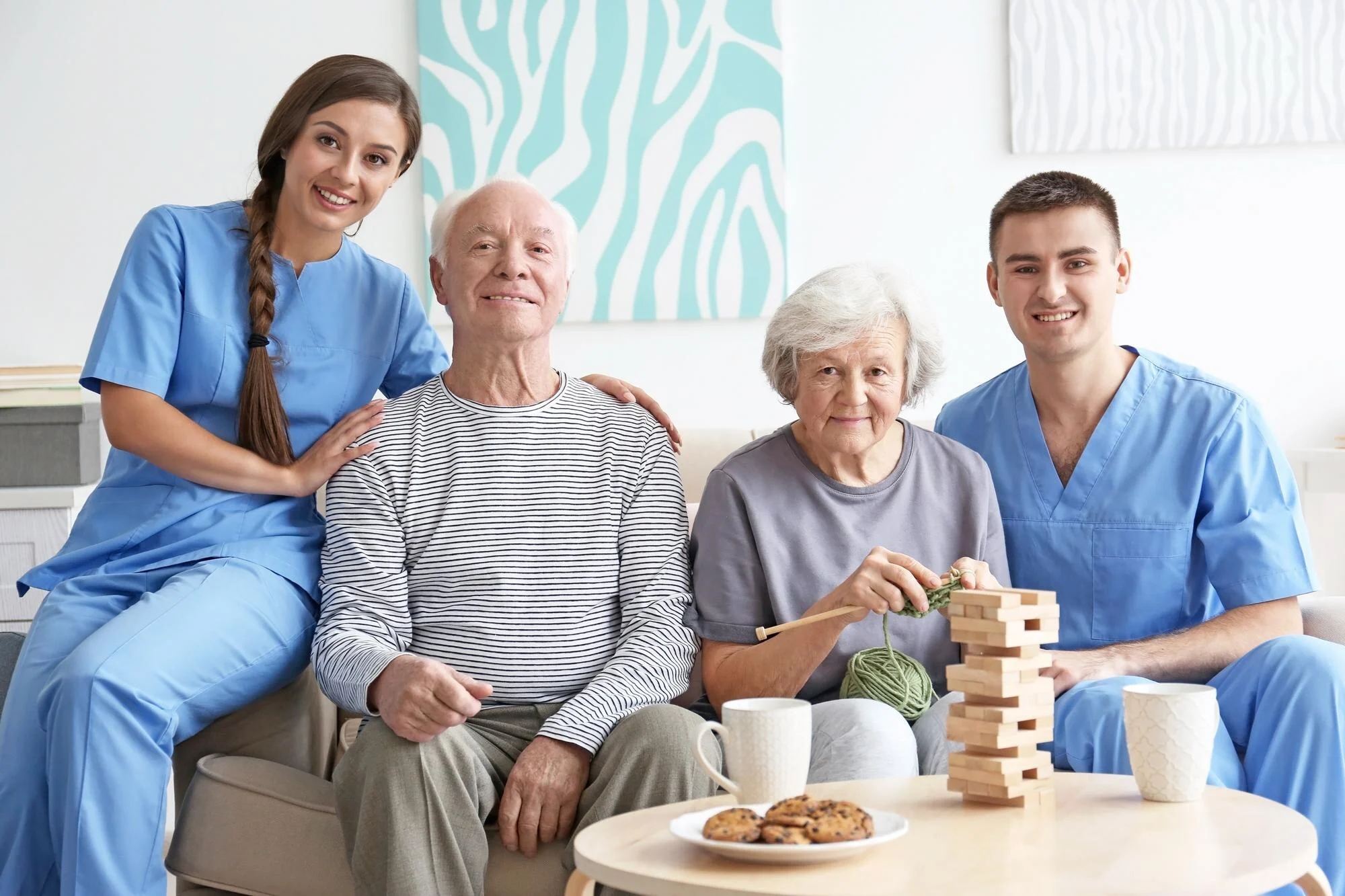The answer lies in understanding how thoughtfully designed routines in companion care can transform not just daily activities, but overall quality of life for seniors.
Unlike medical care, which focuses on health conditions, companion care centers on enhancing daily living through meaningful connection and structured support.
The power of routine in this context extends far beyond simple scheduling; it creates a foundation for dignity, purpose, and joy in the golden years.
What Are Daily Routines in Companion Care?
Daily routines in companion care encompass the structured yet flexible activities that form the backbone of quality companionship services.
These routines blend essential daily tasks with enriching activities that honor each individual’s preferences, capabilities, and life history.
A well-designed companion care routine typically includes morning wellness checks, meal preparation and shared dining, light housekeeping assistance, medication reminders, engaging activities, and evening wind-down time.
However, the magic happens in how these elements are woven together to create meaningful experiences rather than mere task completion.
The most effective routines in companion care recognize that structure provides security while flexibility honors individual needs.
Some seniors thrive with detailed schedules, while others prefer a gentler rhythm that adapts to their energy levels and interests throughout the day.
How Do Structured Routines Benefit Seniors?
The impact of consistent routines on senior wellbeing extends across multiple dimensions of health and happiness. Research consistently shows that structured environments support cognitive function, particularly for individuals experiencing memory challenges or early-stage dementia.
Cognitive Benefits: Predictable routines reduce anxiety and confusion by creating familiar patterns that seniors can anticipate and participate in confidently.
When companion caregivers establish consistent wake-up times, meal schedules, and activity patterns, they’re providing cognitive anchors that help seniors maintain their sense of time and place.
Physical Health Improvements Regular routines naturally incorporate physical activity, proper nutrition, timing, and medication adherence.
A companion caregiver who walks with their client each morning or engages in gentle stretching exercises is building physical wellness into the fabric of daily life.
Emotional Wellbeing Perhaps most importantly, structured routines in companion care combat isolation and depression.
When seniors know they have meaningful interactions and activities to look forward to, it creates positive anticipation that significantly impacts mood and outlook.
When Should Families Consider Structured Companion Care?

Many families wonder about the right timing for introducing companion care into their loved one’s life.
The answer often lies in observing changes in daily structure and social connection rather than waiting for medical emergencies.
Early Warning Signs: If your loved one has stopped maintaining regular meal times, shows decreased interest in previously enjoyed activities, or mentions feeling lonely or bored, these may indicate that structured companionship could be beneficial.
Other indicators include difficulty managing household tasks, missed appointments, or social withdrawal.
Preventive Approach The most successful companion care relationships often begin before crisis points. Introducing companionship services while seniors are still relatively independent allows for gradual relationship building and routine establishment without the stress of urgent care needs.
Essential Elements of Effective Companion Care Routines
Creating a meaningful daily structure requires balancing consistency with personalization. The most effective routines in companion care share several key characteristics that distinguish quality companionship from basic task assistance.
Morning Rituals That Matter Successful companion care routines often begin with gentle morning check-ins that assess mood, comfort, and any overnight concerns.
This might include assistance with morning hygiene, medication reminders, and sharing breakfast while discussing the day’s plans. The key is creating a warm, unhurried start that sets a positive tone.
Meaningful Midday Activities The afternoon hours offer opportunities for the most enriching aspects of companion care.
This might include light exercise like walking or chair yoga, engaging hobbies, meal preparation together, or social activities like phone calls with family or friends. Quality companion services recognize that these activities should align with individual interests and capabilities.
Evening Comfort and Connection Evening routines in companion care often focus on winding down and preparing for restful sleep.
This might involve reviewing the day’s highlights, gentle conversation, assistance with evening medications, and ensuring comfort and safety for the night ahead.
How Companion Care Differs from Other Elder Care Options
Understanding the unique role of companion care helps families make informed decisions about their loved one’s support needs.
Unlike home health aides who focus primarily on medical tasks or housekeepers who handle cleaning duties, companion caregivers specialize in the human connection aspects of daily living.
The Companionship Focus Elderly companion care prioritizes relationship building and emotional support alongside practical assistance.
A companion caregiver might help with meal preparation, but the emphasis is on shared conversation and enjoyment rather than simply completing the task efficiently.
Flexibility Within Structure Quality companionship services adapt routines based on daily energy levels, weather, health fluctuations, and personal preferences.
This flexibility within structure is what makes companion care particularly suitable for seniors who want to maintain independence while receiving support.
Creating Personalized Routines That Work

The most successful routines in companion care emerge from understanding each individual’s life history, preferences, and current capabilities. This personalization process requires time, observation, and genuine interest in what makes each person unique.
Assessment and Adaptation Effective companion care begins with comprehensive conversations about preferred daily rhythms, favorite activities, important relationships, and any concerns or fears about receiving support. This information becomes the foundation for creating routines that feel natural rather than imposed.
Family Involvement The best companion care routines often incorporate family traditions, important relationships, and meaningful connections. This might mean scheduling regular video calls with grandchildren, preparing favorite family recipes, or maintaining connections with longtime friends and community organizations.
Read more: Senior Companion Care Management: Tools for Families Supporting Seniors from Afar
Supporting Independence Through Structure
One of the most beautiful aspects of quality companion care is how proper routines actually enhance independence rather than diminishing it.
When seniors have reliable support for challenging tasks, they can focus their energy on activities they enjoy and can manage successfully.
Maintaining Dignity: Thoughtful routines in companion care emphasize what seniors can do rather than what they cannot.
A skilled companion caregiver might assist with grocery shopping but encourage their client to choose items and make decisions, maintaining autonomy within the support structure.
Building Confidence: Regular routines that include achievable goals and meaningful activities help seniors maintain confidence in their capabilities.
This might involve tending to houseplants, organizing photo albums, or participating in community activities with companion support.
The Role of Communication in Successful Routines
Open communication between seniors, families, and companion caregivers forms the foundation of effective daily routines. This ongoing dialogue ensures that routines remain relevant, enjoyable, and supportive as needs and preferences evolve.
Regular Check-ins Quality companion care includes regular conversations about what’s working well, what might need adjustment, and any new interests or concerns that have emerged. This collaborative approach ensures that routines serve the individual rather than becoming rigid requirements.
Family Coordination The most successful companion care arrangements include regular communication with family members about daily experiences, any concerns, and celebrations of positive moments. This transparency builds trust and ensures continuity of care.
Choosing the Right Companion Care Approach
When families begin exploring companion care options, understanding different service models can help identify the best fit for their loved one’s needs and preferences.
Traditional agency models often provide standardized services, while newer collaborative approaches offer more personalized, community-focused support.
The care collective model represents an evolution in companion care, emphasizing collaboration between families and companion caregivers who work together as a team rather than through traditional hierarchical structures.
This approach often results in more consistent, personalized routines because care decisions involve input from everyone who knows the senior well.
Quality companion care recognizes that every senior deserves routines that honor their individuality while providing the structure and support that enhances daily life.
Whether through traditional agencies or innovative care collectives, the goal remains the same: creating meaningful daily experiences that support independence, dignity, and joy.
At Kizuna, we understand that meaningful daily routines form the heart of quality companion care.
Rather than one-size-fits-all solutions, we collaborate to design routines that enhance independence while providing the companionship and structure that make each day meaningful.
If you’re exploring companion care options for your loved one, we’d love to discuss how our community-focused approach might serve your family’s needs.

